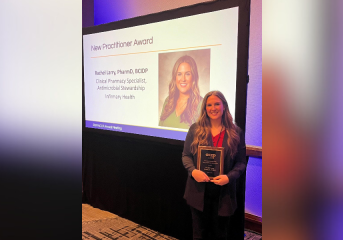August 19, 2022
Grant To Study Tick-Borne Infections At USA

Meghan Hermance, Ph.D., an assistant professor of microbiology and immunology at the Frederick P. Whiddon College of Medicine at USA | photo by USA Health
MOBILE, Ala. — Researchers at the University of South Alabama (USA) plan to use a $2.59-million grant from the National Institutes of Health to study tick-borne infections. The work is being made possible by the grant received by Assistant Professor of Microbiology and Immunology Dr. Meghan Hermance. The five-year study will lay groundwork for developing a way to stop transmission of an emerging tick-borne virus native to Asia by studying the infection dynamics of a tick-borne bunyavirus called “severe fever with thrombocytopenia syndrome virus.” The virus is transmitted by the Haemaphysalis longicornis tick, which is native to East Asia but recently spread to locations including the U.S. Collaborators on the research project include Dr. Jason Strickland and Dr. Thuy Phung, also professors at USA.
Read More
- « Previous
- 1
- 2
- 3
- 4
- Next »
Subscribe to our weekly newsletter
Sign up here for free to get Bay Business News email newsletter every Friday.
By subscribing, you agree to our User Agreement and Privacy Policy & Cookie Statement.







